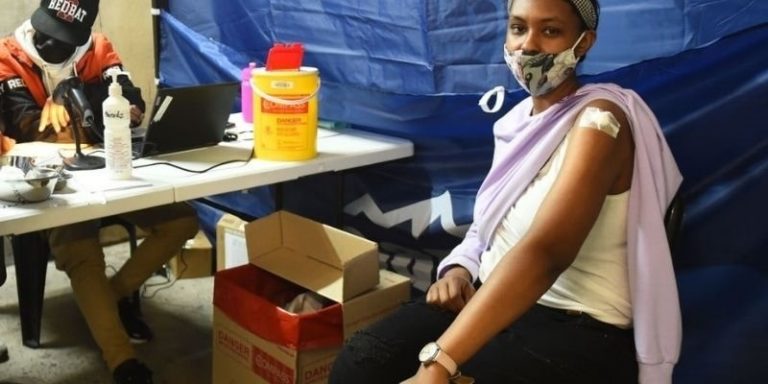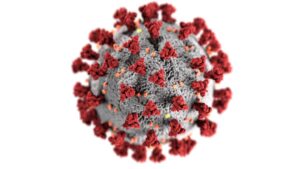Omicron COVID Strain Comes Out of South Africa
Is this new COVID variant good or bad news?
By: GenZ Staff | December 1, 2021 | 773 Words

(Photo by Xabiso Mkhabela/Anadolu Agency via Getty Images)
A new version of the COVID virus has hit the news. Just as Americans hoped the pandemic was almost over, the Omicron variant popped up.
The new strain of COVID was discovered in South Africa, but some suggest the first case occurred in Botswana. Other nations reacted quickly, banning travel from some southern African countries. Despite this, the virus has spread to other parts of the world, including the United States. Luckily, it seems this version of the virus is very mild. There have been no serious cases or Omicron patients sent to hospital so far.
The first known case of Omicron in the U.S. was reported on Wednesday, December 1. A traveler from South Africa, who flew into San Francisco, tested positive for the new variant. The patient has mild symptoms and has been isolating. “We knew that it was just a matter of time before the first case of Omicron would be detected in the United States,” said White House COVID advisor Dr. Anthony Fauci.
President Joe Biden spoke to Americans on Monday, November 29. He told the country the new variant “is a cause for concern, not a cause for panic.” His advice was for Americans to get vaccinated against COVID. The president restricted travel to the U.S. from eight African countries, including Botswana, Eswatini (aka Swaziland), Lesotho, Malawi, Mozambique, Namibia, South Africa, and Zimbabwe.

(Photo by David Silverman/Getty Images)
Scientists are still studying the Omicron variant, and they don’t know how contagious it is yet. South African scientist Dr. Angelique Coetzee was the first person to speak to the public with knowledge of the new variant. According to Dr. Coetzee, Omicron has symptoms that are “very, very mild.” They include fatigue, aches and pains, more of a scratchy throat than a sore throat, and no cough. Her Omicron patients do not report a loss of smell or taste.
A top official in Botswana said that almost all cases of the Omicron variant found in that country didn’t show any symptoms at all.
A Mutating Virus
One thing that makes Omicron different is the number of mutations (or changes) it has. A virus is a type of tiny lifeform – in fact, scientists aren’t sure whether a virus is a living creature or not. It can only reproduce when it is living inside a host, which is why it tries to infect humans, animals, and plants. But since a virus is an invader in our bodies, the immune system of the host usually tries to kill the virus. To avoid being destroyed, a virus will mutate so that our immune system can’t kill it. This causes different strains or “variants” of a virus to be created.

(Photo by CDC/API/Gamma-Rapho via Getty Images)
The Omicron variant is named after the 15th letter of the Greek alphabet (Oo). Some other strains of the virus have also been named after letters of the Greek alphabet, such as Delta (Δδ), Lambda (Λλ), and Mu (Mμ).
The Omicron variant seems to have a lot more mutations than other strains. It has at least 40 mutations, which is a lot more than other strains of COVID. For example, Delta has only nine mutations.
Since it has so many mutations, scientists think Omicron may evade the vaccines we have. Maria Van Kerkhove, an epidemiologist with the World Health Organization, said:
“What we do know is that this variant has a large number of mutations … And the concern is that when you have so many mutations, it can have an impact on how the virus behaves. So right now, researchers are getting together to understand where these mutations are and what that potentially may mean …”
What Does It Mean?
So, is this all bad news? It might not be. Dr. Ole F. Olesen at the European Vaccine Institute said, “It can be good news.” Olesen suggested that different COVID strains might compete with each other, and that Omicron might end up being more common than the deadlier strains.
A mild version of a virus can spread more quickly because people may pass it on without realizing they have it. This can cause mild strains to become dominant. So, even though Omicron may end up spreading quickly, it could also mean that COVID will not be as deadly as it used to be.
It’s too early to say what effects Omicron will have on the world – more research needs to be done before scientists know for sure.
















